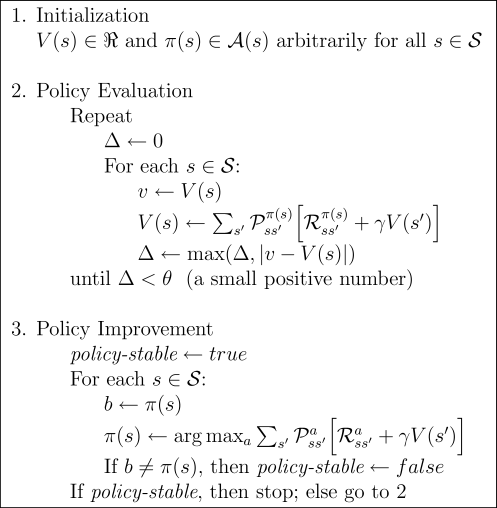Algorithms like policy iteration and value iteration are often classified as dynamic programming methods that try to solve the Bellman optimality equations.
My current understanding of dynamic programming is this:
- It is a method applied to optimization problems.
- DP problems exhibit optimal substructure, i.e., the optimal solution to a problem contains the optimal solution to a subproblem.
- These subproblems are not independent of each other, but are overlapping.
- There are two approaches - one is a bottom-up, the other is top-down.
I have the following questions:
Is this understanding of DP comprehensive? Does every DP algorithm have an optimal substructure with overlapping subproblems?
How does policy iteration and value iteration fit into this scheme? Can we call it bottom-up or top-down?


